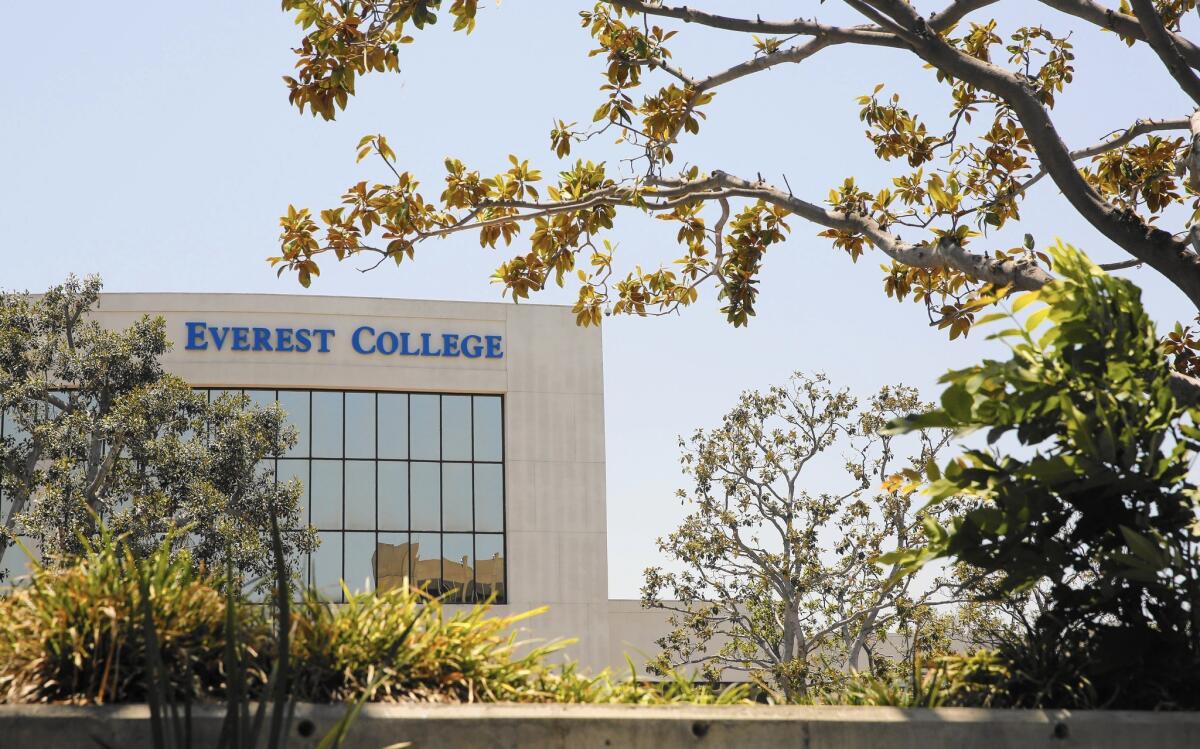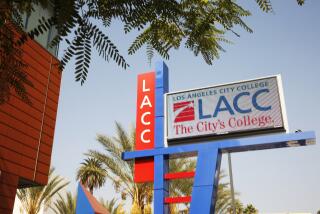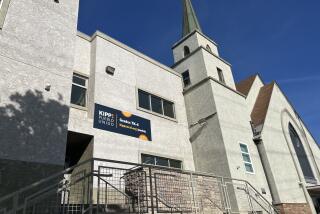Q&A: Corinthian shutdown: What it means for students

Corinthian Colleges’ closures include 13 Everest College and WyoTech campuses in California, along with 12 Heald College campuses in California, Hawaii and Oregon. Corinthian will also close Everest colleges in Phoenix and Rochester, N.Y., along with an online division in Tempe, Ariz. Above, the Everest campus in Santa Ana.
Corinthian Colleges Inc., a Santa Ana company that was once one of the nation’s largest for-profit college chains, announced that it is shutting down its remaining two dozen schools effective Monday — a move that leaves 16,000 students scrambling for alternatives.
What colleges did Corinthian own?
The company owned three main brands: Everest College, WyoTech and Heald College.
What went wrong?
Corinthian has been in serious trouble for almost a year, after the U.S. Department of Education last June restricted its access to federal student aid — the source of nearly 85% of its revenue. The department was concerned that its schools were falsifying graduates’ job placement rates, and officials said Corinthian wasn’t providing sufficient documentation to answer their questions.
Corinthian’s schools were already under investigation by more than a dozen state attorneys general and federal investigators over allegations of aggressive and fraudulent marketing, and unfair financial aid practices.
Lacking access to crucial funding, Corinthian executives told investors the company might not be able to stay afloat. In July, the company agreed to sell off 85 campuses and online programs, and wind down operations at others.
Did Corinthian manage to sell the schools?
In November, the company announced it would sell 56 campuses to ECMC Group, a nonprofit student loan servicer. But Corinthian’s California campuses were not part of that deal, because of the buyer’s concerns about outstanding litigation with California Atty. Gen. Kamala D. Harris.
Why the sudden closure of the remaining schools?
In recent weeks, Corinthian said it had been close to selling its 12 Heald College campuses in California, Oregon and Hawaii. But the company said the California attorney general’s office was effectively blocking the sales by requiring that future buyers assume liability.
Also, the California Bureau for Private Postsecondary Education, which regulates career colleges, halted enrollment earlier this month at Corinthian’s Everest and WyoTech schools in California.
What’s next for students?
Students who attended the schools that suddenly shut down will be eligible for refunds of federal student loans, or can try transferring credits to other institutions. Transferring is typically a difficult process, particularly because credits at career colleges like Corinthian’s schools aren’t often recognized by other institutions.
Corinthian sent this letter to students Sunday. And the California Bureau for Private Postsecondary Education will be at Everest and WyoTech campuses across the state Tuesday and Wednesday. The agency has a website to advise students on applying for loan forgiveness and transfer of credits.
What about students at the schools sold last year?
Students attending Corinthian campuses sold to ECMC Group last year do not have a clear path to erasing student loan debt, because the schools didn’t close. But in recent months, a group of more than 100 former Corinthian students have gone on a student debt “strike,” refusing to pay Corinthian debt until the Department of Education considers more widespread loan relief to all those affected by Corinthian’s downfall. Nine state attorneys general, including Harris, have joined those students in asking the federal government to forgive loan debt to Corinthian students.







